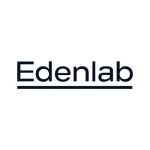What is our primary use case?
We deployed it for storage consolidation, core banking solutions and to host core banking applications. We have also deployed it for disaster recovery replication solutions. We have a combination of on-premises and ONTAP Cloud for data protection, replication, and instances.
We also use this solution for databases on flash and DFF deployed for core database systems to manage call database systems.
What is most valuable?
It is a unified solution, and you have all the licenses for all the protocols available on the ONTAP. It also has easy management, so if somebody's running ONTAP 8, they can still manage ONTAP 9. It's the same commands, just a few syntax changes. It is very easy to manage in terms of system and GUI management. You can set up the system in under 15 minutes, and it will be up and running. Also, regarding system administration, it is fascinating that we can manage the smaller systems the same way we manage the bigger systems. There is no difference in terms of system administration and creating logs. The simplicity of the OS is a key selling point, and mixed customers appreciate it.
What needs improvement?
It's a perfect system, we have been using it for many years, and many changes have been made, but the rate of technology could be improved. It takes about 60% of the raw capacity to get a user to capacity. It is a lot, and competing solutions don't take up to that in terms of the rate.
I don't think anything needs to be added in the next release. The ONTAP 9 is perfect, and none of our systems have upgraded to the new updates. The updates usually address significant failures. We don't have any technical issues with NetApp ONTAP's system, and with no updates, it is still perfect. However, it needs to be monitored due to security threats, so most updates ensure that security is well managed and handled.
For how long have I used the solution?
We have been using this solution for 11 years and are working with the latest updates. It is a hybrid environment and deployed both on cloud and on-premises.
What do I think about the stability of the solution?
It is stable and reliable.
What do I think about the scalability of the solution?
It is one of the most scalable storage solutions.
How are customer service and support?
The technical support is fantastic. I rate the technical support a ten out of ten.
Which solution did I use previously and why did I switch?
We've worked with Dell and HP products. The scalability in NetApp ONTAP is the best. The technology is almost the same across solutions, and you can create volumes, logs and maps. In addition, the NetApp ONTAP is unified, and you can do all protocols on a single controller. For other solutions like HP, you have to buy system licenses. For NetApp ONTAP, if a customer starts with a very small system and grows, they can buy bigger ones and integrate them with smaller ones with no issue because they are running the same operating system.
How was the initial setup?
The setup is straightforward, and our company provides all the implementation services. If all information is available and there is a power supply, the system is set up in less than 30 minutes. I rate the setup a ten out of ten.
Maintenance is the function of the customer and the kind of application that is deployed on the product. Usually, the system comes with a minimum of three-year support by the OEM, and NetApp ONTAP takes charge of doing that for patch replacements, patch upgrades and access to software updates. In addition, they have the next business day and four-hour support. However, four-hour support is unavailable in our region in West Africa due to resources, so we sell next business day support.
Weekends are challenging to provide support, but partners intervene during the weekend before NetApp ONTAP comes up on the next business day. So, we have various support, but West Africa has limited choices due to the cost and contract business. However, most of our customers enjoy it and don't have issues.
Everybody can work with NetApp ONTAP. I have customers with very low budgets running NetApp ONTAP, which is where the NetApp ONTAP Cloud comes in. It doesn't have to be hardware. NetApp ONTAP is software that is now a commodity like VMware so that you can buy it on Amazon, Azure, and as a commodity. If you're a big company, you have access to bigger platforms, and if you're a small company, there are smaller platforms.
What's my experience with pricing, setup cost, and licensing?
The price is relative. Once the value is appreciated, price is a much simpler issue. In terms of licensing, I feel NetApp ONTAP is a bit pricey compared to other solutions, but it has value, and the total cost of ownership of the NetApp ONTAP system is cheaper than the others. The initial cost might be a bit high, but over a period of time, it's cheaper. I rate the price a six out of ten, with one being expensive and ten being cheap.
What other advice do I have?
I rate this solution a ten out of ten. Regarding advice, if you are looking for a unified environment where you can use all your protocols anytime, you want NetApp ONTAP to be the answer. If you want scalable storage with good OEM support where you can deploy on a hybrid environment across multiple clouds and on-premises, NetApp ONTAP is also the answer.
Disclosure: My company has a business relationship with this vendor other than being a customer. Partner









